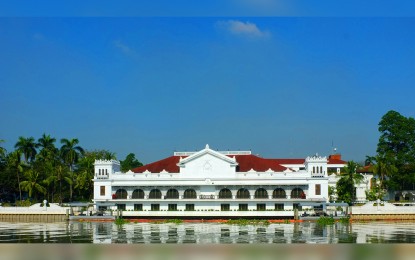
MANILA – Malacañang on Thursday reassured the public that government has enough funds to assist those affected by Taal Volcano’s eruption and contain the coronavirus disease (Covid-19) in the country.
Presidential Spokesperson Salvador Panelo made this comment when asked during a Palace press briefing if shortage of funds for calamities has something to do with the lifting of suspension of loan and grant agreements with the 18 countries that supported an Iceland-sponsored United Nations Human Rights Council (UNHRC) resolution calling for an inquiry into the administration’s drug war.
“I think we have enough funds otherwise the President would have said we need to get some more funds,” Panelo said in a Palace briefing.
Panelo said he would still have to ask Duterte to explain his reason for lifting the suspension.
“I haven’t asked him that. I will ask him. I intend to ask him,” he said.
He said Duterte called for the suspension due to an “outrage reaction” but this did not mean that he could not change his mind about it a few months later.
“You must remember that that [suspension] was made because of what these countries did when they passed that resolution condemning the war on drugs in this country. And it was more of an outrage reaction having already expressed our stand on that perhaps there is now a reason to change it,” he said.
Panelo said Duterte suspended the loan negotiations with the 18 countries on August 27, 2019 because he felt “insulted” by the resolution which called for a probe into the drug war.
On July 11, 2019, the UNHRC adopted the Iceland-sponsored resolution urging UN High Commissioner for Human Rights Michelle Bachelet to write a comprehensive report on the situation in the Philippines and present it to the council.
The 18 countries in the 47-member UNHRC that voted in support of the drug war probe were Argentina, Australia, Austria, Bahamas, Bulgaria, Croatia, Czech Republic, Denmark, Fiji, Iceland, Italy, Mexico, Peru, Slovakia, Spain, Ukraine, the United Kingdom and Uruguay.
Nothing wrong
Last month, Panelo said he saw nothing wrong with seeking help from international organizations for the rehabilitation of areas in Southern Tagalog affected by Taal Volcano’s eruption.
US Ambassador to the Philippines Sung Kim earlier bared in January that the US committed to provide USD100,000 or about PHP5.1 million in relief assistance to the communities affected by Taal’s unrest.
China also donated 1 million yuan (over PHP7.2 million) to support communities affected by the Taal Volcano eruption.
Duterte signed Proclamation 906 declaring the Southern Tagalog Region (Region 4-A) under a state of calamity to “hasten the rescue, relief and rehabilitation efforts of the government and the private sector, including any international humanitarian assistance.”
The declaration will afford the national government and local government units (LGUs) ample leeway to utilize appropriate funds for the rescue, recovery, relief, and rehabilitation of, and to continue to provide basic services for affected populations.
He has also urged Congress to pass a PHP30-billion supplemental budget to build more evacuation centers in Southern Tagalog provinces devastated by the eruption of Taal Volcano.
To combat Covid-19, the United States donated USD37 million to help 25 countries, including the Philippines.
In a statement, the US Agency for International Development (USAID) said such funding is sourced from USAID’s Emergency Reserve Fund for Contagious Infectious Diseases.
“These are the first US government funds committed from the pledge of up to USD100 million announced by the US Department of State on February 7. Because an infectious-disease threat anywhere can be a threat everywhere, we call on other donors to contribute to the effort to combat Covid-19 as well,” the USAID said.
Aside from the Philippines, other high priority countries identified by the USAID are Afghanistan, Angola, Indonesia, Iraq, Kazakhstan, Kenya, South Africa, Tajikistan, Turkmenistan, Uzbekistan, Zambia, Zimbabwe, Bangladesh, Burma, Cambodia, Ethiopia, Kyrgyzstan, Laos, Mongolia, Nepal, Nigeria, Pakistan, Thailand and Vietnam.
Funds going to the WHO will be used to help the beneficiary countries to “prepare their laboratories for large-scale testing for Covid-19, implement a public-health emergency plan for points of entry, activate case-finding and event-based surveillance for influenza-like illnesses, train and equip rapid-response teams, investigate cases and trace the contacts of infected persons, and adapt training materials for health workers on Covid-19.” (PNA)
